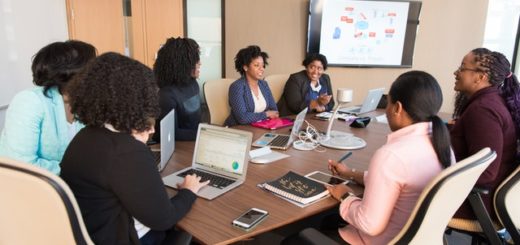Consultancy Services required to undertake a Gender Mainstreaming Training for JRS and its partners in Kakuma Refugee Camp
1. TERMS OF REFERENCE (TOR)
Engaging Consultant to undertake a Gender Mainstreaming Training for JRS and its partners in Kakuma Refugee Camp
2. Background
Gender-unaware projects neglect to address gender and exclusion issues, thereby exacerbating gender and exclusion disparities. They lack the potential to contribute to gender equality and inclusion. Because of this, JRS launched a Gender Policy in May 2020 to ensure that its programming is gender transformative. The purpose of the Global Policy on Gender is to establish a clear vision, direction, common language, and consistent message to operationalize and communicate our commitment to the promotion of gender equality, women/girls’ rights, and inclusion for all of our staff, at all levels. In addition to the purpose, it contains 3 core objectives,
i. gender-responsive design and delivery in services,
ii. a non-discriminatory culture that guarantees the right to equal opportunity for all,
iii. transformative gender equality language that addresses different levels of JRS’ operations in its humanitarian work.
3. Rationale
Poverty and social injustice cannot be overcome until all people have equal rights and opportunities. Gender inequality and lack of a balanced voice of women, men, and the youths; weak governance, and the increasing frequency and impact of humanitarian crises are the three critical underlying causes of poverty and social injustice. Power relations between genders and ages are unequal, and that we must challenge patriarchy and promote gender equality to achieve social justice. Our work must be embedded in the local context, and we must be aware of local legal environments. In conservation, equal rights and opportunities to resource use are important for sustainable resource utilization.
JRS and other partner agencies in Kakuma Refugee Camp have identified generalized low level of women’s participation in the activities offered and access to services. That women that access services usually drop out which is evident at schools, where there is high rate of girls’ drop-outs. In February 2019, a random survey was conducted in Kakuma to find out the reasons why they were not accessing or dropping out. The results were not conclusive although it helped JRS to have a clearer idea of the issues they encounter. Some of these difficulties were: some cultures did not allow women to talk in front of men, most women have children and are tied up at home with baby sitting and household chores, language barrier, low level of education and many more other reasons.
It is based on this that JRS Kenya is seeking for services of a capable individual to offer a 3-day training in mainstreaming Gender into its staff and Partners in Kakuma Refugee Camp.
It is hoped that the outcome will enhance the momentum and equitable will to strengthen women/girls agency, foster enabling environments, and support boys/men to embrace positive masculinities in promoting the gender equality agenda forward.
4. Goal and Objective
Goal: Gender mainstreaming is practically adopted by all JRS staff and partners as an element of good practice.
The specific objectives are:
- To impart practical knowledge and skills on gender mainstreaming concepts in humanitarian work.
- To enable JRS staff and partners to understand gender key concepts including clearly and accurately defining key vocabulary.
- To articulate various dimensions of gender in a dynamic environment
- To enable JRS staff and partners to practically apply mainstreaming concepts in their work.
- To enable JRS staff and partners to build their capacity as leaders/catalyst for gender mainstreaming at JRS through leadership skills.
- To link gender mainstreaming and other diversity issues that affect organization operation.
- To develop gender mainstreaming checklist or audit form to track progress or check implementation of the knowledge gained by staff.
5. Scope of Work
a) The work shall entail carrying out the training for 45 participants drawn from JRS staff and partner Partners and;
- Identifying gaps from the JRS’s staff on gender knowledge
- Introducing key concepts defining them to participants
- Linking other diversity issues with gender
- Identifying gender mainstreaming as a leadership activity and imparting leadership skills on participants
- Highlighting gender mainstreaming as a key element of good practice within an organization
- Balancing the demands of day-to-day work with good practice
- Practical examples on how gender can be mainstreamed in planning and reporting.
- Setting a list of good practice on gender to ensure a change in behavior, attitudes, and beliefs and ultimately organizational culture
- Skills on monitoring and evaluating gender mainstreaming practices.
- Linking internal gender practices with the external environment
6. Proposed Methodology
The trainers shall be expected to adopt appropriate training strategies that ensure a change of attitude for the staff and partners trained and retention of knowledge and skills for practice.
The training will be conducted in a participatory manner and in a way that will enable JRS staff and partners to learn practical skills on gender issues. The trainer may choose to give the participants periodic exercises on gender concepts to ascertain levels of understanding from each participant.
The training will be customized to fit JRS’s values, mission, plans, and JRS’ gender policy strategic directions.
A summary of written and verbal communication can be used to enhance trainee participation. The participants must leave the training with a thorough understanding of gender concepts and skills to practically apply those to their daily work.
It is also expected that the trainer studies specific gender context approaches since the group shall be coming from and working in diverse backgrounds.
7. Duration:
The training will be conducted over 3 days from 8.30 am to 5 pm daily.
8. Deliverables
- Developing training materials
- Delivering a comprehensive, in-depth 5 days training session on gender mainstreaming as outlined in the scope of work
- Developing and submitting the training report
- Conduct training as required for staff in gender-related concepts and gender mainstreaming techniques.
- Facilitate and support the participants to mainstream the gender perspective plan of action within the strategic structure of their programs and activities.
- Develop a few gender perspective monitoring indicators
- Identify and tackle resistance strategies with peer dialogue and role-play.
- Ensure sufficient resources (including time) to discuss gender issue.
- Submit a proposed implementation plan with tentative timelines for the required service that is in line with the ToR.
9. Accountability and Responsibility
The trainer shall report to the Project Director or his/ her designate under whose docket the training will be conducted. In line with the organization’s core values, all trainers will be required to sign a code of conduct and child protection policy.
JRS shall provide for:
i. Guidance throughout all phases of execution.
ii. Approval of all deliverables including final sign-offs to make payments. Terms of payment the payment schedules shall be described in the contract.
iii. Make available suitable facilities for training, during the period of the Agreement.
iv. JRS shall make all payments herein agreed upon after making the mandatory statutory deductions and other deductions such as taxes, certificate accreditation as specified.
The consultant will be responsible for;
- Submitting a detailed proposal in conformity with the TORs specified herein.
- Submission of all the required statutory documentation.
- Production of deliverables as per contractual requirements.
- Preparation of a detailed follow‐up plan after the training.
10. Required expertise and qualifications.
- Training expertise is a pre-requisite while gender knowledge and skills are required.
- An advanced degree in the Social Sciences is preferable.
- Postgraduate qualification in gender and diversity or related areas is a clear advantage.
- Minimum 3-4 years of previous training work, knowledge, experience, and passion for gender mainstreaming and diversity work is required.
- Excellent report writing and tool development skills are a requirement for the development of the handbook.
- Good command of English both spoken and written is essential.
- Knowledge and experience of humanitarian work will be a clear advantage.
- Must be willing to abide by JRS code of conduct, Child safeguarding and PSEAH policies.
The project seeks to identify experts that fulfill the above criteria and have demonstrated ability to provide relevant expertise and bring a wider perspective in developing contextual content.
Scope of financial Proposal and Schedule Payments:
- The consultant will be offered a lump sum fee inclusive of travel cost
- The payments will be made in installments based upon outputs/deliverables specified in the TOR
Payment Schedule:
- 50% on signing the contract and submission of a comprehensive list of contents to be included pre-workshop to ensure that all the required contents are included
- 50% on submission of training report in English.
Criteria for Selection of the Best Offer:
The evaluation for the consultant will be based on Combined Scoring methods – where the qualifications and methodology are given 70% weightage and the financial offer will be given 30% weightage. Only consultant meeting a minimum of 50 points under technical evaluation will be considered for the financial evaluation. The following specific criteria will be assessed:
Criteria
Weight (%)
Max. Point
Technical / 70%
- Demonstrated knowledge on Gender Mainstreaming mechanisms/instruments
- Experience and skills in contextualizing Gender Policy Manuals
- Demonstrates experience and skills in facilitation/consultation and coordination skills
- Methodology, activities, Work plan, experience, and skills etc.
Financial / 30%
Total 100%
11. Submissions of application documents
The required documents should be sent by email to hrkenya@jrs.net and with the words. “Consultancy for Gender Mainstreaming Training,” as the title of the mail.
JRS reserves the right to reject any application(s) without disclosing the reasons. The deadline for application submission is 18thApril 2022.
Documentations:
While submitting the Technical Proposal, the Applicant shall ensure to attach the following:
- Profile of the consultant (max 1 page) explaining why they are the most suitable for the work.
- Detailed methodology and conceptual framework with expected deliverable and timeline
- Recent CV
Modification and Withdrawal of Bids:
The Bidder may modify or withdraw its bid after submission, provided that the written notice of the modification, or withdrawal of the bid is duly signed by the Bidder prior to the deadline.








